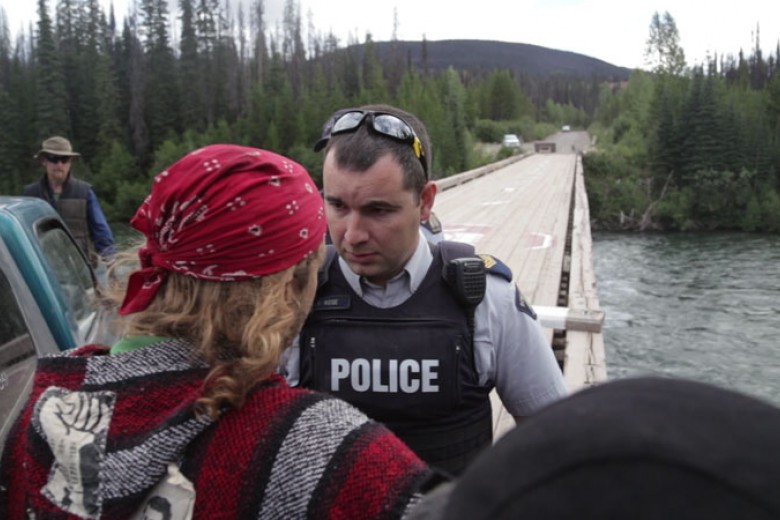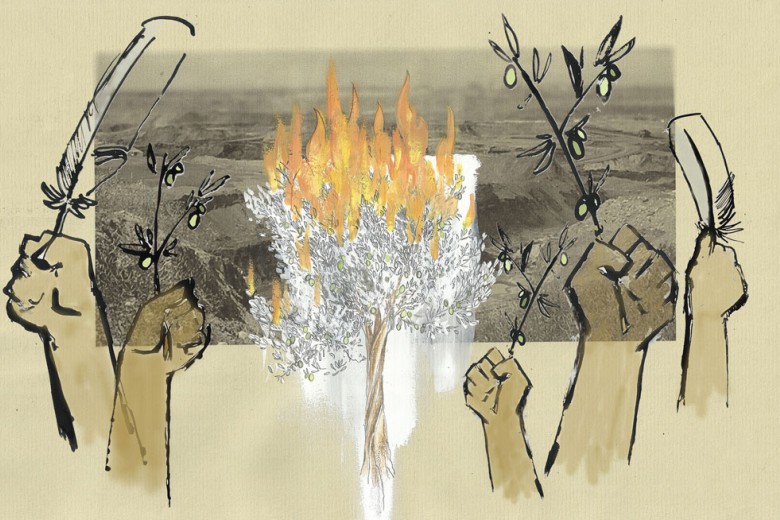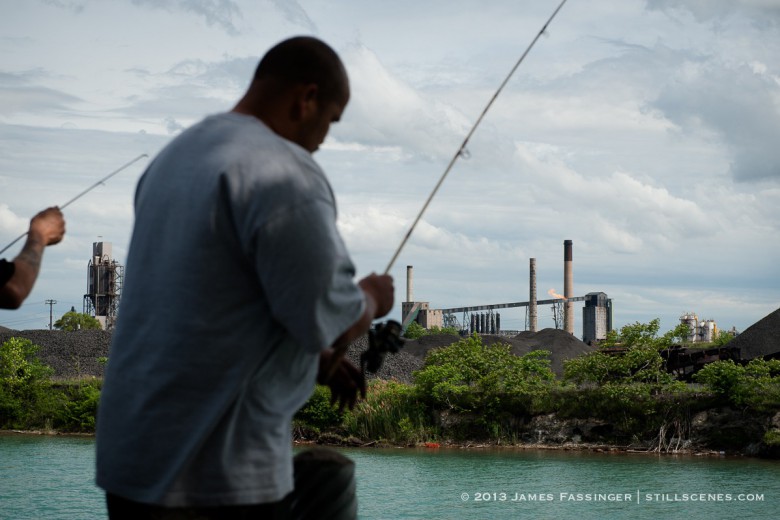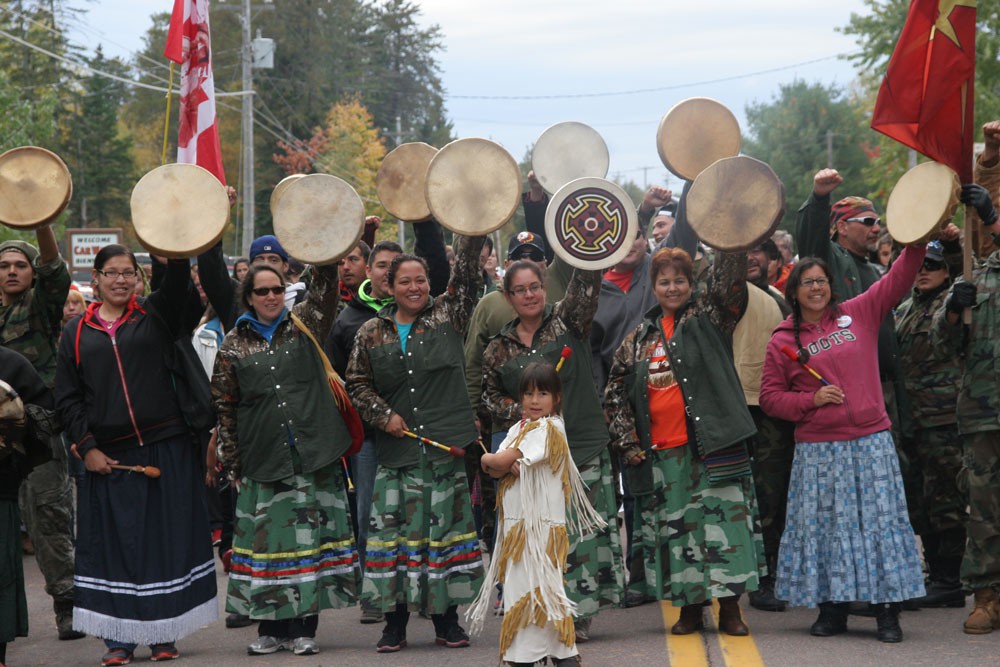
A Mi’kmaq resurgence is bypassing Indian Act leaders to protect the land and confront the colonial power that operates through the revolving door between government and industry.
The grassroots-led battle against the attempts of SWN Resources Canada to conduct seismic testing in Kent County in New Brunswick grabbed international attention last year. The coverage featured an RCMP attack in which hundreds of police from several provinces overran a blockade encampment in the pre-dawn hours of October 17, 2013. The police arrested 40, pepper-sprayed dozens, and fired non-lethal rounds with abandon.
The near daily protests in 2013, which culminated with the raid, fortunately did not result in loss of life or serious injury. But there have been casualties of other sorts.
Aaron Francis and Germain (Junior) Breau, members of the Mi’kmaq Warriors Society, have been behind bars since October 17. The pair pleaded guilty to a variety of charges, but their trial concluded with a focus on further charges, including four counts related to Molotov cocktails for Francis, and five counts of pointing a firearm at a peace officer for Breau. (Following delays, Judge R. Leslie Jackson’s ruling is expected June 26.)
New Brunswick Premier David Alward and his Conservative government have been banking on opening up New Brunswick for hydraulic fracturing. In a province that continuously occupies the basement in national economic indicators, it would be a Conservative strategist’s dream for shale gas to be seen as the force that might throw off several generations’ worth of economic hardship.
Some pundits have suggested that New Brunswick is the province that capitalism forgot, remaining stuck in a feudal economy with the Irving Oil empire replacing royalty in all but formal title. Billionaires many times over – with fingers in everything from print media to building supplies, oil refining to potatoes, toilet paper to transportation – the Irvings run New Brunswick like a private kingdom.
Pad by pad, well by well
Premier Alward and his party have inherited the contentious shale gas file from the previous Liberal government under Shawn Graham, that, in 2010, had directed the Department of Natural Resources request tenders for nearly 1.4 million hectares of predetermined tracts of land in New Brunswick. At first glance, a request like this suggests that the Department of Natural Resources already had a good idea of the location of natural gas deposits in the wilds of New Brunswick and was simply looking for a developer.
In what might be an unaddressed conflict of interest, Shawn Graham’s father, Alan Graham, was minister of Natural Resources from 1991 to 1998 and is one of the largest landowners in Kent County, the hotbed of seismic testing in 2013. This wouldn’t be the first conflict of interest for Shawn Graham, who abdicated the provincial Liberal helm after having provided millions in loans to a company with which his father was involved.
SWN Resources Canada, for its part, appears to have at least felt the Indigenous-led sting of the opposition in 2013, which resulted in hundreds of thousands of dollars in destroyed equipment and lost work hours. In December of 2013, SWN announced they had completed their seismic testing in New Brunswick and would not be returning for further work until 2015.
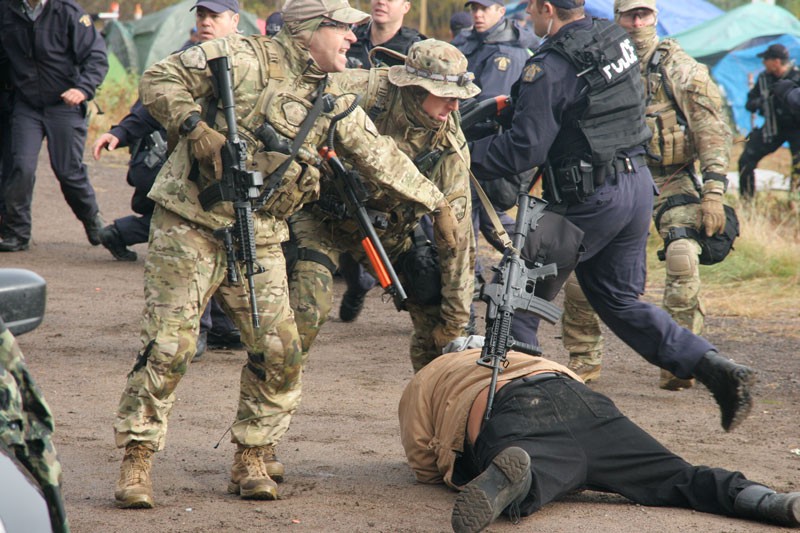
That said, the Texas-based company has also submitted requests for environmental assessments for four test wells that it has publicly said it intends to drill – not hydraulically fracture, mind you – in 2015. The requests for assessments currently on the provincial desk are the proverbial death by a thousand cuts in that they only address specific steps in the drilling process.
By itself, the construction of a well pad may not trigger an environmental assessment, nor would the construction of one test well. But pad by pad, well by well, the cumulative effects mount, building momentum without governmental address as was the case with the Alberta tarsands.
Until drilling actually begins – if indeed it does – the provincial and corporate strategy will likely manifest itself as continued “relationship building” with First Nations groups. The Maritimes is unceded territory, and title remains in the hands of the original confederacy of First Nations groups who have inhabited the area since time immemorial.
Co-opting consultation
In New Brunswick, as with other provinces, the government has a duty to consult First Nations about projects that involve resource development. Conveniently for Premier Alward, he is also the provincial minister of Aboriginal Affairs.
Under Alward’s watch, the Aboriginal Affairs Secretariat crafted a revised provincial duty to consult policy long on rhetoric but void of the triggering consultative mechanisms that exist in heavily resource-extractive provinces like Saskatchewan and Alberta. Traci Braaten, a longtime Saskatchewan policy developer, has said the New Brunswick document “might be legal [but] it’s not lawful.”
The resurgence of grassroots-led action is inspiring and a cause for hope, but unlike in northern British Columbia, where traditional forms of governance still function alongside Indian Act representatives, autonomous structures of traditional Indigenous governance in Atlantic Canada hardly exist today.
It is difficult to revive and re-empower traditional governance structures when hundreds of years of colonial attempts at genocide have nearly destroyed even the memory of what they used to be. For example, while the Grand Council of the seven traditional districts of Mi’kmaq territory exists, decision-making authority is largely symbolic rather than effective.
Geptin Noel Augustine of District Six, Signigtog, did in fact evict SWN from his traditional territory several times in 2013. But neither the Houston-based company nor the provincial government of New Brunswick has even acknowledged his notices. From a consultative standpoint, what this means is that Indian Act representatives (chiefs and band councils) are unchallenged by traditional governance structures. Key players in the Assembly of First Nations’ Chiefs in New Brunswick (AFNCNB) have expertly interwoven themselves into the consultative process.
Michael Scully, the architect behind the provincial First Nations consultative process, is not only the liaison for community consultation with the AFNCNB but also co-owner of Sweetgrass Financial Services, a firm that specializes in First Nations consultation.
Scully’s co-owners at Sweetgrass are Stewart Paul, a former chief of Tobique First Nation and the brains behind the entire AFNCNB structure, and Angie Leonard, sister of Energy Minister Craig Leonard and a lobbyist with the Canadian Association of Petroleum Producers, the nation’s largest fossil fuel lobby group.
Cecilia Brooks, Indigenous knowledge expert and research director at the AFNCNB, has also recently become enmeshed in the province’s power play to green-light shale gas extraction. After Fred Metallic, a Listuguj Mi’kmaq First Nation member, quit the disgraced New Brunswick Energy Institute, Brooks took his spot on the so-called arm’s-length scientific think-tank.
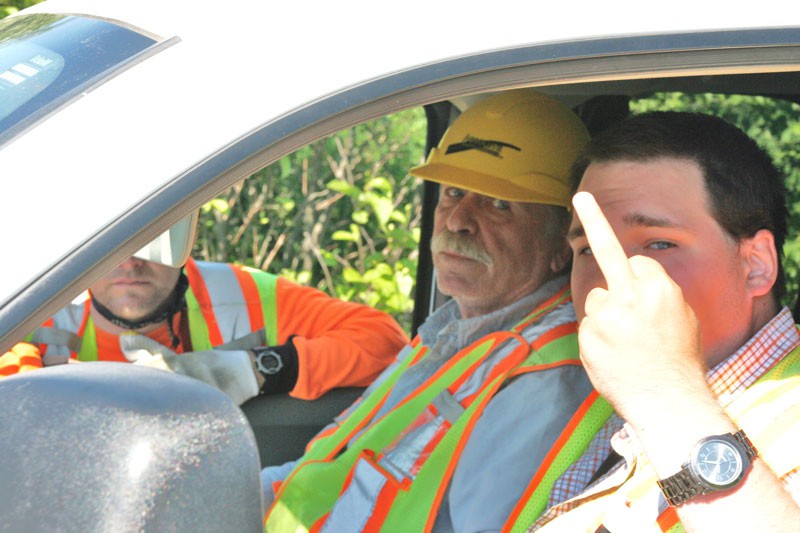
Metallic, who holds a PhD in environmental studies, left the institute after publicly citing the meddling (pro-extraction) influence of the provincial government, saying it made objective scientific work impossible. Metallic’s comments were dismissed by the energy minister as being emotionally driven: Metallic had watched Indigenous people being roughhoused by RCMP over the season and the AFNCNB had recommended Brooks for his position at the institute. The Energy Institute was itself discredited when its head, Louis LaPierre, was outed as having a doctorate in education, not science.
A challenge to the New Brunswick government’s shale gas extraction agenda based on its lack of title is one of the most legally compelling arguments for First Nations peoples and their allies. The extent to which a challenge based on title has been stymied – and indeed folded into the provincial agenda at the consultative level – is indicative of the degree to which industry and their governmental representatives recognize it as a threat.
“This would be easier if Indian Act chiefs actually listened to the grassroots people,” says Suzanne Patles, a treaty scholar and a member of the Mi’kmaq Warriors Society, who was arrested several times over the summer. “But it also goes to show how delegitimate the Indian Act chiefs are. They’re essentially a branch of the federal and provincial government. When they sell off like that, it stinks, because they’re not thinking.
“It’s sad because there are all of the people who are poor and destitute, who are trying to drive a self-determination model, but are not being represented. And the Indian Act chiefs are acting like starving dogs, grabbing that poisonous steak even if it kills them tomorrow. They don’t bother to check their options because there are other food sources available.”
Correction: this article originally stated that Michael Scully was an attorney general in the Shawn Graham government. This is incorrect. Kelly Lamrock, an attorney now with the AFNCNB, was an attorney general with the Shawn Graham government.


